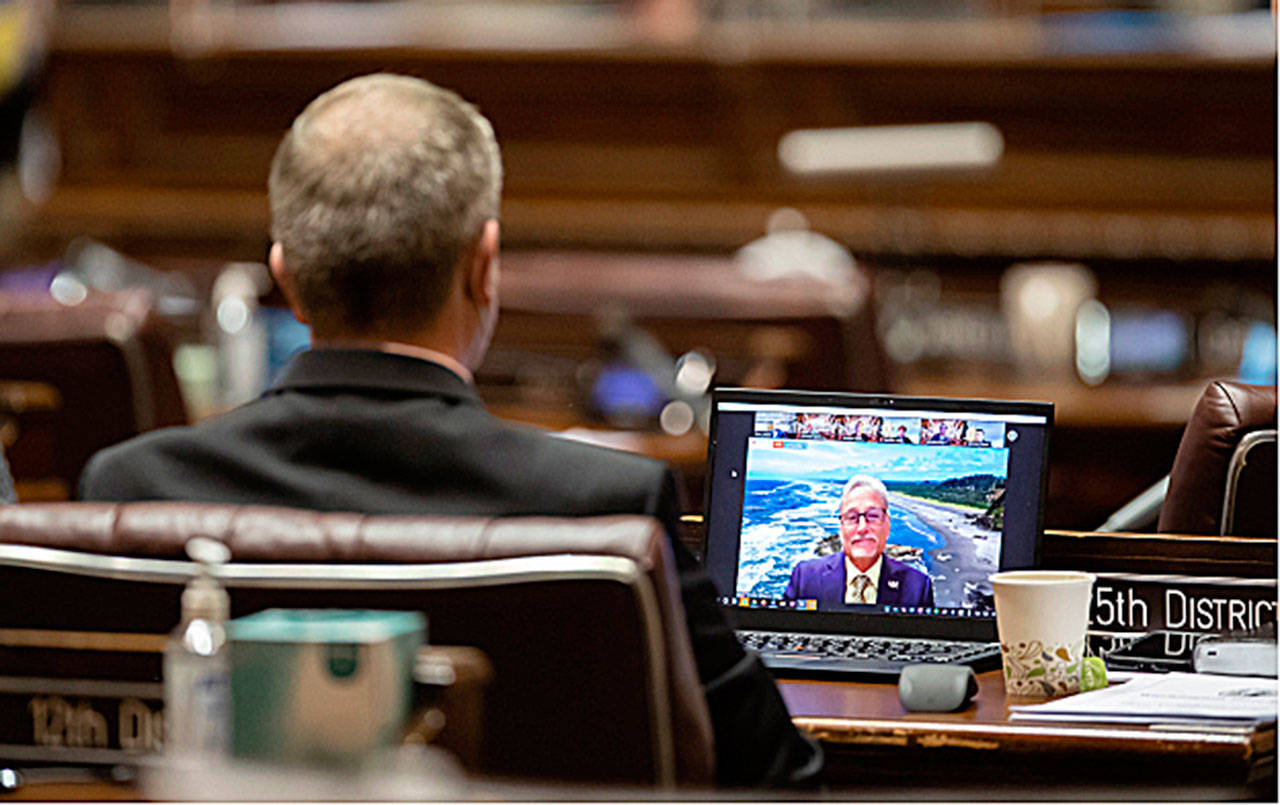Freshman 19th District Sen. Jeff Wilson’s first bill cleared the state Senate Thursday — a measure that would allow local voter-approved public safety sales taxes to be used for emergency medical services.
“This bill is really a recognition of the importance of volunteerism in providing medical services in rural communities,” said Wilson, R-Longview. “Volunteer paramedics and emergency medical technicians are vitally important in rural areas like Grays Harbor County, and we need to make sure money is available for their training.”
Senate Bill 5341, sponsored by Wilson, was approved 49-0, and now moves to the House of Representatives for further consideration. The bill allows cities and counties to use existing voter-approved public safety taxes for emergency medical services.
Wilson explained that the bill was prompted by a state audit last year in Grays Harbor County that determined emergency medical training programs for volunteers were being improperly funded by a share of local transit sales taxes.
That State Auditor finding in March determined that the Grays Harbor Emergency Medical and Trauma Care Council, a nonprofit organization that is the sole provider of emergency medical services training in the county, could not be funded through the Grays Harbor County Transit Authority. The funding for the nonprofit had been provided by the transit authority since 1983.
Wilson said the same issue could surface in other communities as well.
“These volunteers provide an essential service that offers a great benefit to the public, and we all should be grateful for that,” Wilson said. “We shouldn’t ask them to bear the cost of their own training. I was delighted to see the bill pass the Senate unanimously. This is one point on which we all can agree.”
State law allows cities and counties to impose local sales taxes for a variety of purposes, including public safety. The local sales taxes come in addition to the state sales tax of 6.5 percent.
Under current law, with voter approval, cities can enact public safety sales taxes of up to 0.1 percent, and counties can enact public safety sales taxes of up to 0.3 percent. The law requires that at least one-third of public safety tax collections must be used for criminal justice programs or fire protection. Wilson’s measure adds emergency medical services to the list.


